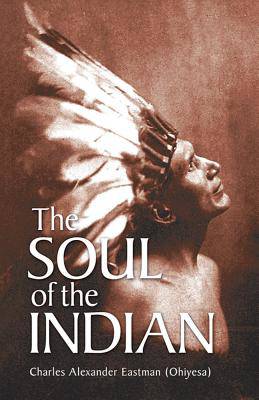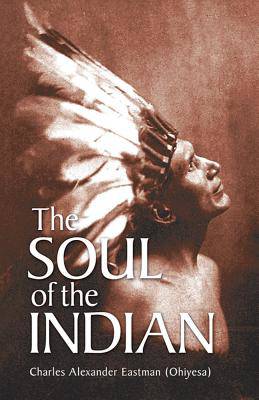
- Afhalen na 1 uur in een winkel met voorraad
- Gratis thuislevering in België vanaf € 30
- Ruim aanbod met 7 miljoen producten
- Afhalen na 1 uur in een winkel met voorraad
- Gratis thuislevering in België vanaf € 30
- Ruim aanbod met 7 miljoen producten
Zoeken
Omschrijving
Raised among the Sioux until the age of 15, Charles Alexander Eastman (1858-1939) resolved to become a physician in order to be of the greatest service to his people. Upon completing his education at Boston University School of Medicine, he accepted an appointment to a South Dakota Indian reservation, where he was the only doctor available to the victims of the 1890 massacre at Wounded Knee. With the encouragement of his wife, he further distinguished himself both as a writer and as a uniquely qualified interpreter of Native American ways. His writings offer authentic, sometimes stirring views of a world that has forever changed.
In The Soul of the Indian, Eastman brings to life the rich spirituality and morality of the Native Americans as they existed before contact with missionaries and other whites. This is a rare firsthand expression of native religion, without the filters imposed by translators or anthropologists. Rather than a scientific treatise, Eastman has written a book, "as true as I can make it to my childhood teaching and ancestral ideals, but from the human, not the ethnological standpoint." His discussions of the forms of ceremonial and symbolic worship, the unwritten scriptures, and the spirit world emphasize the universal quality and personal appeal of Native American religion.
In The Soul of the Indian, Eastman brings to life the rich spirituality and morality of the Native Americans as they existed before contact with missionaries and other whites. This is a rare firsthand expression of native religion, without the filters imposed by translators or anthropologists. Rather than a scientific treatise, Eastman has written a book, "as true as I can make it to my childhood teaching and ancestral ideals, but from the human, not the ethnological standpoint." His discussions of the forms of ceremonial and symbolic worship, the unwritten scriptures, and the spirit world emphasize the universal quality and personal appeal of Native American religion.
Specificaties
Betrokkenen
- Auteur(s):
- Uitgeverij:
Inhoud
- Aantal bladzijden:
- 64
- Taal:
- Engels
- Reeks:
Eigenschappen
- Productcode (EAN):
- 9780486430898
- Verschijningsdatum:
- 2/07/2003
- Uitvoering:
- Paperback
- Formaat:
- Trade paperback (VS)
- Afmetingen:
- 162 mm x 215 mm
- Gewicht:
- 95 g

Alleen bij Standaard Boekhandel
+ 16 punten op je klantenkaart van Standaard Boekhandel
Beoordelingen
We publiceren alleen reviews die voldoen aan de voorwaarden voor reviews. Bekijk onze voorwaarden voor reviews.











